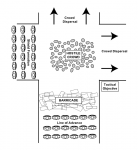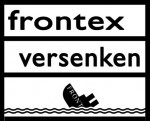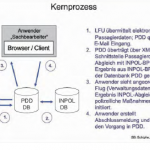Browse: Page 21
By europolice on 15. März 2012
 EU-INTERPOL ties already securing borders and preventing crime
EU-INTERPOL ties already securing borders and preventing crime
LYON, France – A secure Europe needs global law enforcement support, with INTERPOL a key partner in meeting security challenges, European Commissioner for Home Affairs Cecilia Malmström told police chiefs at the closing of the INTERPOL Heads of National Central Bureaus conference.
Addressing the 270 senior police officials from 148 countries, Commissioner Malmström said that to effectively fight organized crime and cybercrime, which pose the greatest risks to EU security, the need for partnerships with countries beyond Europe is essential. Continue reading „INTERPOL a key partner for a secure Europe, says EU Commissioner Malmström“
Posted in English, European Police
By europolice on 15. März 2012
Russian warplane maker Irkut has signed a contract with Vietnam to build a small unmanned aerial vehicle (UAV) for the Southeast Asian country, Izvestia daily reported on Thursday.
The $10 million deal, with Vietnam Aerospace Association (VASA), was signed on Wednesday, Yury Malov, head of the Irkut Engineering, Irkut’s subsidiary, told Izvestia.
The firm will build a 100-kilogram mini-drone, as well as transmitting and remote control systems to operate it. It will also help „teach the Vietnamese side how to maintain and use the drones“ until VASA „has had the experience“ enabling it to build the UAVs itself, Malov said. Continue reading „Russia to Build Mini Drone for Vietnam“
Posted in Drohnen, English
By europolice on 15. März 2012
 In my previous blog post on the use of drones for human rights, I also advocated for the use of drones to support nonviolent civil resistance efforts. Obviously, like the use of any technology in such contexts, doing so presents both new opportunities and obvious dangers. In this blog post, I consider the use of DIY drones in the context of civil resistance, both vis-a-vis theory and practice. While I’ve read the civil resistance literature rather widely for my dissertation, I decided to get input from two of the world’s leading experts on the topic.
In my previous blog post on the use of drones for human rights, I also advocated for the use of drones to support nonviolent civil resistance efforts. Obviously, like the use of any technology in such contexts, doing so presents both new opportunities and obvious dangers. In this blog post, I consider the use of DIY drones in the context of civil resistance, both vis-a-vis theory and practice. While I’ve read the civil resistance literature rather widely for my dissertation, I decided to get input from two of the world’s leading experts on the topic.
The first expert opined as follows: “Whether a given technology delivers strategic or tactical avantage is typically dependent on context. So to the extent that a drone can be useful in getting evidence that delegitimizes a movement’s opponent (i.e. exposing atrocities), and/or legitimizes a movement (i.e. docu-menting strictly nonviolent activities), and/or provides useful intelligence to a movement about an opponent’s current capabilities (i.e. the amount of supplies an adversary has), strengths, and weaknesses, then one could indeed argue that drones could provide strategic or tactical advantages. But contextually speaking, if the amount of human and financial resources necessary to acquire and deploy a drone are a drain on beneficial activities that a movement may otherwise be undertaking, then it’s a cost/benefit analysis.”
As this New York Times article notes, the cost of drones is dropping dramatically and their applications multiplying. Even Professor Francis Fukuyama is getting in on the action. While drones were once exclusively the purview of the military, they are quickly becoming mainstream and being used by civilians. Indeed, the line dividing remote control toy planes and drones is starting to blur. Keep in mind that satellite imagery had a strong military connotation before Google Earth entered the scene a few years ago. Indeed, greater civilian access to satellite imagery has demystified this erstwhile exclusively military technology. (more on irevolution.net)
Posted in Drohnen, English, Was tun?
By europolice on 15. März 2012
 Weltweit sind bereits Hunderte Helikopterdrohnen der Firma Schiebel im Einsatz. Die modernste Drohne der Luftwaffe Israels, der „Dominator II“, wird ebenfalls in Wiener Neustadt gebaut und dann in Israel aufgerüstet.
Weltweit sind bereits Hunderte Helikopterdrohnen der Firma Schiebel im Einsatz. Die modernste Drohne der Luftwaffe Israels, der „Dominator II“, wird ebenfalls in Wiener Neustadt gebaut und dann in Israel aufgerüstet.
Vergangene Woche hatte die US-Luftfahrtbehörde FAA die Einrichtung von mindestens sechs zivilen Basen für unbemannte Flieger angekündigt. Rundum werden auch Flugkorridore durch den zivilen Luftraum eingerichtet, denn dort sollen die Drohnen auch eingesetzt werden. Parallel dazu wurden die bisher sehr strikten Beschränkungen für unbemannte Flieger gelockert. Ähnliches spielt sich gleichzeitig in Deutschland und mehreren, anderen europäischen Ländern ab.
Im zivilen Aviationsbereich gelten Drohnen schon länger als das „nächste große Ding“, zumal sie sich in immer mehr militärischen Bereichen durchsetzen. (weiter auf fm4.orf.at)
Posted in Drohnen, European Police, Militaer
By europolice on 15. März 2012
Die EU ist zu Verhandlungen mit Belarus über Erleichterung der Visaordnung und Rückübernahmeabkommen bereit, teilte man in der Vertretung der Europäischen Union in Minsk mit.
Der EU-Rat bevollmächtigte die Europäische Kommission zu Verhandlungen mit Belarus über Unterzeichnung der Visa- und Rückübernahmeabkommen. Darüber beschloss man auf der Sitzung des Rates für Verkehr, Telekommunikationen und Energie.
Das Dokument erinnert, dass der Rat der EU-Außenminister in seinen Schlussfolgerungen zu Belarus vom 31. Januar die Wichtigkeit unterstrich, zwischenmenschliche Kontakte zwischen Belarus und der Europäischen Union zu vereinfachen.
Mitte November 2010 empfiehl die Europäische Kommission dem EU-Rat, ihr ein Mandat für die Verhandlungen über Abkommen zu Erleichterungen im Kurzvisum-Bereich und Rückübernahmeabkommen zu gewähren. Continue reading „EU ist zu Verhandlungen mit Belarus über Erleichterung der Visaordnung und Rückübernahmeabkommen bereit“
Posted in Border Control
By europolice on 15. März 2012
 Saab is one of the main sponsors of the 2nd edition Border Surveillance Conference in Brasilia and is participating with speakers on common operating picture for Border safeguarding.
Saab is one of the main sponsors of the 2nd edition Border Surveillance Conference in Brasilia and is participating with speakers on common operating picture for Border safeguarding.
Border Safeguarding is constantly challenged by the ever-changing threats of the 21st century and is vital to providing a strong defense against external threats such as international terrorist, drugs and foreign disease. It incorporates all applications of land, air and naval power designed to detect, preempt, respond to, mitigate, and recover from the full spectrum of incidents and threats to the country, whether man-made or natural.
Achieving a common operating picture amongst multiple agencies, organizations and even amongst key individuals of the same agency who are geographically dispersed is in most instances difficult to achieve. This puts pressure on all role players involved in Border Safeguarding to provide a Common operating picture. Continue reading „Saab Sponsors Border Surveillance Conference in Brasilia“
Posted in Border Control, English
By europolice on 14. März 2012
 Last week, EFF reported on two instances of pro-Syrian-government malware targeting Syrian activists through links sent in chats and emails. This week, we’ve seen new Windows malware dropped by a fake YouTube site hosting Syrian opposition videos.
Last week, EFF reported on two instances of pro-Syrian-government malware targeting Syrian activists through links sent in chats and emails. This week, we’ve seen new Windows malware dropped by a fake YouTube site hosting Syrian opposition videos.
Below is a screenshot of the fake YouTube page, which attacks users in two ways: it requires to to enter your YouTube login credentials in order to leave comments, and it installs malware disguised as an Adobe Flash Player update.
This phishing site has been taken down, but if you encounter a similar page do not enter your YouTube login credentials to comment. If you have already logged in to the site (or a similar site) to leave a comment follow the steps outlined below to see if your computer has been infected, and change your YouTube and Gmail passwords from an uninfected computer immediately. You may also wish to take some additional steps to make sure that your Gmail account is secure, including enabling 2-factor authentication and checking to see if any suspicious forwarding addresses or delegated accounts have been added to your account. (more on eff.org)
Posted in English, European Police, Kommunikation
By europolice on 14. März 2012
 What was the undercover officer doing in New York in 2008? He claims to have worked for the FBI – did you encounter him?
What was the undercover officer doing in New York in 2008? He claims to have worked for the FBI – did you encounter him?
Was Mark Kennedy, the infamous police spy who infiltrated political activists in Europe, also an FBI agent? And can you help us work out what he was doing in New York?
In an interview with Rolling Stone magazine, Kennedy, who spent seven years living as green campaigner ‚Mark Stone‘, claims to have received a special commendation from the United States federal intelligence agency. The FBI declined to comment on the story, but Kennedy provided some tantalising details to the US magazine. (more on guardian.co.uk)
Posted in English, European Police
By europolice on 14. März 2012
Trisha Thomas
Despite raising a hullabaloo over getting access to blackberry encrypted messages for the last three years, the government is yet to get the ability to check such messages, it said on Wednesday.
While it was assumed that it now has the capacity to ’screen‘ all communications going in and out of India, the new statement clearly says security agencies are not able to decrypt or read all emails or messages.
They get a copy of the encrypted communication, thanks to a clause contained in the licenses of telecom and internet service providers, but they don’t know what to do with the data. Continue reading „India: Telecom operators wash their hands off Blackberry-encryption controversy“
Posted in English, Kommunikation
By europolice on 14. März 2012
 Matthias Monroy
Matthias Monroy
In zahlreichen internationalen Veranstaltungen trägt das Bundeskriminalamt seine Erfahrungen mit staatlich genutzter Spionagesoftware vor. Auch der britische Trojaner-Hersteller Gamma durfte sich präsentieren
Der Austausch zwischen deutschen und ausländischen Behörden zur Nutzung staatlicher Trojaner-Programme ist weit umfangreicher als bisher bekannt. Dies geht aus der Antwort des Parlamentarischen Staatssekretärs Ole Schröder auf eine neue Parlamentarische Initiative hervor. Demnach hat sich das Bundeskriminalamt unter anderem mit entsprechenden Abteilungen in Großbritannien, den USA, Kanada, Österreich, Luxemburg und Liechtenstein getroffen. Vor sechs Wochen besuchten die digitalen Ermittler die israelische Polizei. Neben dem Bundeskriminalamt haben auch der deutsche Inlandsgeheimdienst sowie das Bundesinnenministerium an Treffen teilgenommen.
Trotz eindeutiger Nachfrage nach allen „bi- oder multilateralen Treffen“ zu staatlichen Trojanern hatte die Bundesregierung die jetzt genannten Netzwerke zunächst geheim gehalten. Im Oktober gab sie nur bekannt, dass sich das Bundeskriminalamt mit der Schweiz, den Niederlanden und Belgien in einer informellen Arbeitsgruppe organisiert (Internationaler Trojaner-Stammtisch). (weiter auf heise.de)
Posted in BKA, European Police, Remote Forensic
By europolice on 13. März 2012
 The U.S. Defense Advanced Research Projects Agency says it will research a system to let soldiers overseas access near-live satellite images of their location.
The U.S. Defense Advanced Research Projects Agency says it will research a system to let soldiers overseas access near-live satellite images of their location.
Current satellites cannot provide such information as they are in the wrong orbits and are difficult for troops on the ground to access, experts said.
DARPA’s SeeMe program (Space Enabled Effects for Military Engagements) would create a swarm of inexpensive disposable satellites to allow soldiers on the ground to hit a „see me“ button on a hand-held device such as a smartphone or tablet and receive a satellite image back in less than 90 minutes, NewScientist.com reported Tuesday. Continue reading „‚See Me‘ satellites may help ground forces“
Posted in English, Militaer, Space
By europolice on 13. März 2012
 Standards, Tactics, and Training Manual
Standards, Tactics, and Training Manual
March 2004
The purpose of this Manual is to provide guidance on the tactics and standards approved by the Association of Chief Police Officers in relation to the discipline referred to ordinarily as ‘Public Order’. It is essentially the tactical complement to ACPO’s strategic document ‘Keeping the Peace’.
As with so much in policing ‘Public Order’ defies a simplistic definition covering as it does a range of policing activities including the most solemn, the most joyous and the most dangerous events that our communities may be involved with. Without doubt the proper maintenance of order in those communities and the preservation of the peace are core activities for the police service.
This Manual is not intended to be the final word in public order tactics – which would be both presumptuous and impossible. It is meant to identify the best of our current knowledge, set standards and give advice – it will therefore need to be changed as the challenges facing the police service and its response develop. To fail to do so would be a corporate dereliction of duty. (pdf on euro-police.noblogs.org)
Posted in Crowd Control, English, European Police, Policing Major Events
By europolice on 13. März 2012
 London 2012 will see the UK’s biggest mobilisation of military and security forces since the second world war and the effects will linger long after the athletes have left
London 2012 will see the UK’s biggest mobilisation of military and security forces since the second world war and the effects will linger long after the athletes have left
Stephen Graham
As a metaphor for the London Olympics, it could hardly be more stark. The much-derided „Wenlock“ Olympic mascot is now available in London Olympic stores dressed as a Metropolitan police officer. For £10.25 you, too, can own the ultimate symbol of the Games: a member of by far the biggest and most expensive security operation in recent British history packaged as tourist commodity. Eerily, his single panoptic-style eye, peering out from beneath the police helmet, is reminiscent of the all-seeing eye of God so commonly depicted at the top of Enlightenment paintings. In these, God’s eye maintained a custodial and omniscient surveillance on His unruly subjects far below on terra firma.
The imminent Olympics will take place in a city still recovering from riots that the Guardian-LSE Reading the Riots project showed were partly fuelled by resentment at their lavish cost. (more on guardian.co.uk)
Posted in English, European Police, Policing Major Events
By europolice on 13. März 2012
Louise Ridley
Body and bag scanners will screen visitors at London Live events during the Olympics, in airport-style safety checks that organisers say could take up to an hour.
The tight security will be in place at the Hyde Park and Victoria Park sites which will broadcast Olympic Games coverage on big screens and hold music and sport events from 27 July to 12 August.
John Probyn, chief operating officer for London Live’s promoter Live Nation, said: „The security services will search the sites a couple of days before we open and then we have to vouch for every person, item and every piece of equipment from that point on, so it effectively becomes a sealed site.“
Probyn said he hoped security checks would take less than one hour for visitors to pass through. (more on eventmagazine.co.uk)
Posted in English, European Police, Policing Major Events
By europolice on 13. März 2012
 Brussels, 9 March 2012
Brussels, 9 March 2012
7431/12
NOTE from: the Belgian, the French, the German, The Netherlands, the Austrian, the Swedish and the UK delegations
The Ministers responsible for migration of Austria, Belgium, France, Germany, The Netherlands, Sweden and the United Kingdom, with the Danish EU Presidency as observer, met in Brussels on 7 March 2012 to agree on measures regarding matters of mutual interest in the field of preventing illegal immigration with a special focus on secondary migration movements.
One of the major achievements of the EU is the freedom of movement and the guarantee of security within the Schengen system, based on mutual trust between Member States.
Insufficient management of external borders and lack of compliance with the existing acquis are a serious threat both to the Schengen system and to the confidence of European citizens in management of migration at national and EU levels. It is therefore of utmost importance that in the spirit of solidarity, all EU Member States live up to their responsibilities by ensuring a functioning management of the external borders in line with the Schengen acquis, as well as a functioning national asylum system in order to guarantee this area of freedom, security and justice in the long run. In this perspective, it is of the utmost importance that the authorities in Member States that are responsible for the execution of legislation under the Schengen acquis are not vulnerable to elements that undermine the rule of law.
The European Union and its Member States are confronted with major challenges in the field of asylum and migration. The creation of a Common European Asylum System and a common framework for genuine and practical solidarity, effective action against illegal immigration and the strengthening of the Schengen area, as well as a renewed external migration policy framework under the Global Approach are currently among the priority issues on the European agenda. In this context, secondary migration flows, following illegal entry in the EU, represent a particular challenge. (pdf at euro-police.noblogs.org)
Posted in Border Control, English, European Police
By europolice on 13. März 2012
Cybercrime highlighted as key security threat at international police chiefs meeting
LYON, France – Senior police officials from around the world are meeting at INTERPOL’s eighth Heads of National Central Bureaus (NCBs) conference to focus on strategic initiatives against the global policing challenges faced by its 190 member countries.
The three-day (13-15 March) conference gathering some 270 delegates from 148 countries opened today with its efforts set on the need for INTERPOL to continually adapt its resources and expertise to better address 21st Century crime and the changing security landscape in the face of evolving threats such as cybercrime.
INTERPOL President Khoo Boon Hui said: “Facilitating police cooperation and the exchange of information globally is a critical component of achieving our vision of a safer world. In this respect, research and development will be essential for the progress of global policing in a complex security landscape in which criminals are exploiting cyber space to commit crimes such as online fraud, identity theft or money laundering.” Continue reading „Global policing at a strategic crossroads, says INTERPOL“
Posted in Various
By europolice on 13. März 2012
 In Niedersachsen wurde in drei Fällen „TKÜ-Systemtechnik“ der Firma Syborg eingesetzt, um im Sinne der „Quellen-TKÜ“ per Skype geführte Telefonate mithören zu können. In zwei Fällen arbeiteten die niedersächsischen Polizeiermittler mit der Software, was 36.975 Euro kostete, in einem Fall wurde sie von Zollermittlern genutzt, sie wurde vom Bund bezahlt. Bei allen Einsätzen konnte die Software erfolgreich installiert werden, sie führte in mindestens einem Fall zu einem Fahndungserfolg mit Festnahme eines Verdächtigen.
In Niedersachsen wurde in drei Fällen „TKÜ-Systemtechnik“ der Firma Syborg eingesetzt, um im Sinne der „Quellen-TKÜ“ per Skype geführte Telefonate mithören zu können. In zwei Fällen arbeiteten die niedersächsischen Polizeiermittler mit der Software, was 36.975 Euro kostete, in einem Fall wurde sie von Zollermittlern genutzt, sie wurde vom Bund bezahlt. Bei allen Einsätzen konnte die Software erfolgreich installiert werden, sie führte in mindestens einem Fall zu einem Fahndungserfolg mit Festnahme eines Verdächtigen.
Das geht aus einer Antwort (PDF-Datei) der niedersächsischen Landesregierung auf eine Große Anfrage der Linksfraktion hervor. Die Anfrage mit dem Titel „Quellen-Telekommunikationsüberwachung und Onlinedurchsuchungen – Wie steht es mit dem Einsatz von Staats-Trojanern in Niedersachsen?“ wurde wegen Geheimnisschutz‘ nur teilweise beantwortet, um die Arbeit des Verfassungsschutzes nicht zu gefährden. So liefert sie keine neuen Erkenntnisse zum Einsatz von Trojaner-Software. (weiter auf heise.de)
Posted in Remote Forensic
By europolice on 13. März 2012
 Der Europäische Ombudsmann, P. Nikiforos Diamandouros, hat eine Untersuchung darüber eingeleitet, wie Frontex seiner Verpflichtung zur Einhaltung von Grundrechten nachkommt. Frontex ist eine EU-Agentur mit Sitz in Warschau. Sie koordiniert die operative Zusammenarbeit der Mitgliedstaaten im Bereich der Grenzsicherung. Im vergangenen Jahr wurde eine Verordnung verabschiedet, die vorsieht, dass Frontex eine Grundrechte-Strategie, Verhaltensleitlinien für ihre Einsätze und einen Grundrechte-Beauftragten einführt. Wegen der Bedeutung dieses Themas, das auch für die Zivilgesellschaft von großem Interesse ist, hat der Ombudsmann Frontex eine Reihe von Fragen über ihr Verständnis und ihre Umsetzung dieser Verpflichtungen vorgelegt.
Der Europäische Ombudsmann, P. Nikiforos Diamandouros, hat eine Untersuchung darüber eingeleitet, wie Frontex seiner Verpflichtung zur Einhaltung von Grundrechten nachkommt. Frontex ist eine EU-Agentur mit Sitz in Warschau. Sie koordiniert die operative Zusammenarbeit der Mitgliedstaaten im Bereich der Grenzsicherung. Im vergangenen Jahr wurde eine Verordnung verabschiedet, die vorsieht, dass Frontex eine Grundrechte-Strategie, Verhaltensleitlinien für ihre Einsätze und einen Grundrechte-Beauftragten einführt. Wegen der Bedeutung dieses Themas, das auch für die Zivilgesellschaft von großem Interesse ist, hat der Ombudsmann Frontex eine Reihe von Fragen über ihr Verständnis und ihre Umsetzung dieser Verpflichtungen vorgelegt.
Hintergrund
Die EU-Grundrechtecharta wurde 2009 rechtlich bindend für Frontex. Seitdem haben verschiedene zivilgesellschaftliche Organisationen Zweifel daran geäußert, ob Frontex genug unternimmt, die Charta einzuhalten. So wurde zum Beispiel der Einsatz von Grenzschutz-Teams durch Frontex in Griechenland in Frage gestellt, wo inhaftierte Immigranten in Haftanstalten unter Bedingungen untergebracht wurden, die vom Europäischen Gerichtshof für Menschenrechte kritisiert wurden. Continue reading „Ombudsmann untersucht Umsetzung von Grundrechten durch Frontex“
Posted in Border Control
By europolice on 13. März 2012
 Libya and its neighbours have agreed to cooperate on issues of regional security, including illegal immigration, interim Prime Minister Abdel Rahim al-Kib said today.
Libya and its neighbours have agreed to cooperate on issues of regional security, including illegal immigration, interim Prime Minister Abdel Rahim al-Kib said today.
„We have adopted the Tripoli action plan on regional cooperation and border control,“ Kib told reporters in Tripoli at the end of a two-day regional conference on border security.
The agreement aims to reinforce bilateral and regional relations to combat organised crime, including drug and arms trafficking, terrorism and illegal immigration, Kib said.
In the short term, it prioritises the exchange of intelligence on all regional security threats, a joint analysis of the root causes behind illegal immigration, and the implementation of mechanisms for coordinated action.
The conference brought together ministers and security experts from Algeria, Chad, Egypt, Mali, Mauritania, Morocco, Niger, Sudan and Tunisia, with the aim of enhancing cooperation. Continue reading „Libya and its neighbours to cooperate on immigration“
Posted in Border Control, English
By europolice on 13. März 2012
 Lufthansa finally sent me the history (change log) portion of my PNR data but continues to claim that it isn’t responsible for either its retail agent Vayama.com (who created the PNR as an agent of Lufthansa) or the wholesale consolidator Transam Travel (who issue the ticket as an agent of Lufthansa). The LDI-NRW upheld Lufthansa’s false claim that it has no control over its agents, and is not responsible for their actions. this is both legally and factually incorrect, and leads me to suspect that the LDI-NRW beleived whatever Lufthansa said without conducting an independent investigation of the facts or reviewing Lufthansa’s „agency appointment agreements“ with Vayama.com and Transam Travel. The LDI-NRW also upheld Lufthansa’s disclosure only of general categories of potential third-party recipients of my data in other countries, even though that response showed that my data could have been illegally transferred to countries without adequate data protection regimes. I am disappointed in the complete failure of the LDI-NRW to fulfill its responsibilities. My only further recourse is to bring a lawsuit against Lufthansa in German court. if anyone can offer pro bono legal assistance for that purpose, please contact me. (the whole history on hasbrouck.org)
Lufthansa finally sent me the history (change log) portion of my PNR data but continues to claim that it isn’t responsible for either its retail agent Vayama.com (who created the PNR as an agent of Lufthansa) or the wholesale consolidator Transam Travel (who issue the ticket as an agent of Lufthansa). The LDI-NRW upheld Lufthansa’s false claim that it has no control over its agents, and is not responsible for their actions. this is both legally and factually incorrect, and leads me to suspect that the LDI-NRW beleived whatever Lufthansa said without conducting an independent investigation of the facts or reviewing Lufthansa’s „agency appointment agreements“ with Vayama.com and Transam Travel. The LDI-NRW also upheld Lufthansa’s disclosure only of general categories of potential third-party recipients of my data in other countries, even though that response showed that my data could have been illegally transferred to countries without adequate data protection regimes. I am disappointed in the complete failure of the LDI-NRW to fulfill its responsibilities. My only further recourse is to bring a lawsuit against Lufthansa in German court. if anyone can offer pro bono legal assistance for that purpose, please contact me. (the whole history on hasbrouck.org)
Posted in Border Control, Datenbanken, English
 EU-INTERPOL ties already securing borders and preventing crime
EU-INTERPOL ties already securing borders and preventing crime












